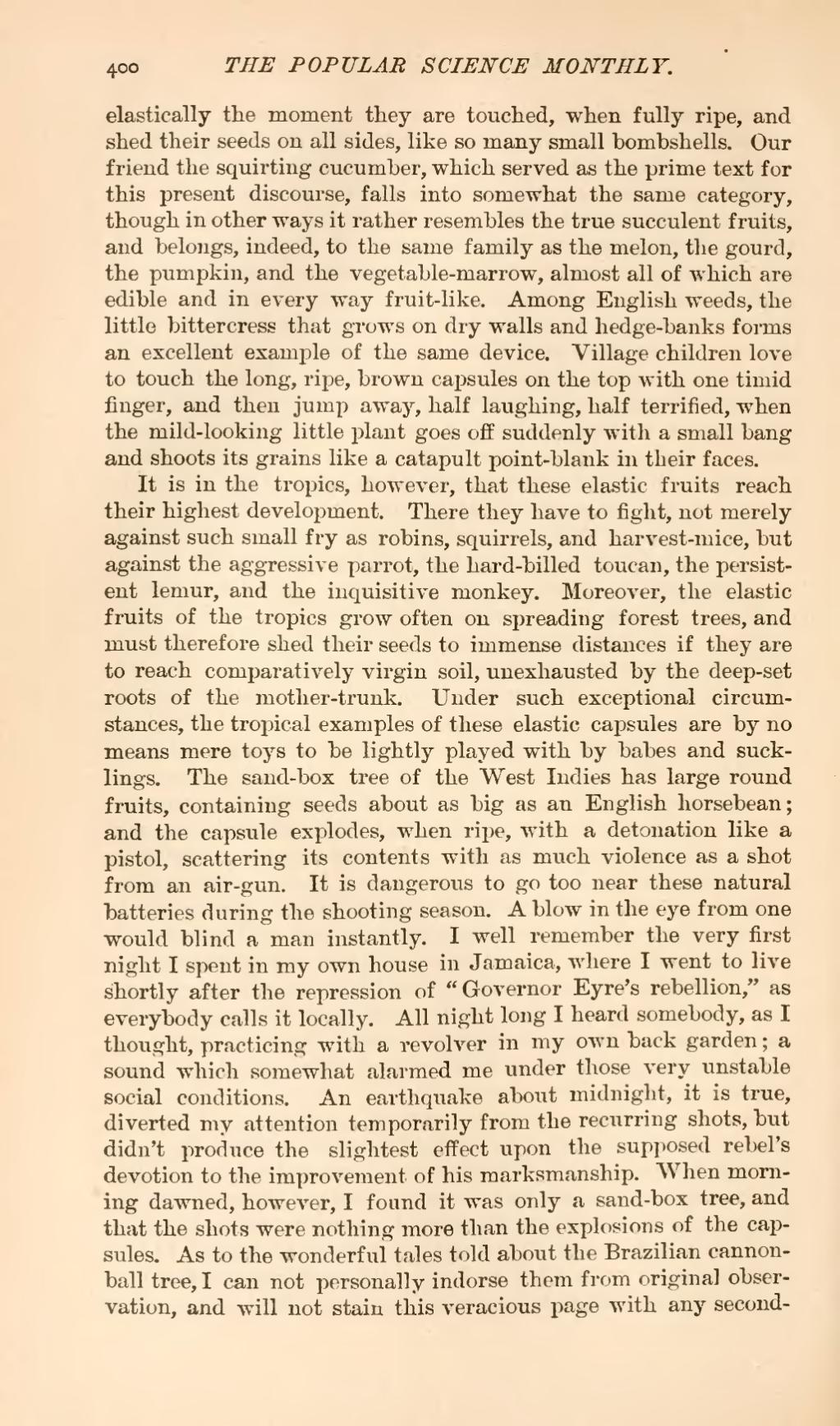elastically the moment they are touched, when fully ripe, and shed their seeds on all sides, like so many small bombshells. Our friend the squirting cucumber, which served as the prime text for this present discourse, falls into somewhat the same category, though in other ways it rather resembles the true succulent fruits, and belongs, indeed, to the same family as the melon, the gourd, the pumpkin, and the vegetable-marrow, almost all of which are edible and in every way fruit-like. Among English weeds, the little bittercress that grows on dry walls and hedge-banks forms an excellent example of the same device. Village children love to touch the long, ripe, brown capsules on the top with one timid finger, and then jump away, half laughing, half terrified, when the mild-looking little plant goes off suddenly with a small bang and shoots its grains like a catapult point-blank in their faces.
It is in the tropics, however, that these elastic fruits reach their highest development. There they have to fight, not merely against such small fry as robins, squirrels, and harvest-mice, but against the aggressive parrot, the hard-billed toucan, the persistent lemur, and the inquisitive monkey. Moreover, the elastic fruits of the tropics grow often on spreading forest trees, and must therefore shed their seeds to immense distances if they are to reach comparatively virgin soil, unexhausted by the deep-set roots of the mother-trunk. Under such exceptional circumstances, the tropical examples of these elastic capsules are by no means mere toys to be lightly played with by babes and sucklings. The sand-box tree of the West Indies has large round fruits, containing seeds about as big as an English horsebean; and the capsule explodes, when ripe, with a detonation like a pistol, scattering its contents with as much violence as a shot from an air-gun. It is dangerous to go too near these natural batteries during the shooting season. A blow in the eye from one would blind a man instantly. I well remember the very first night I spent in my own house in Jamaica, where I went to live shortly after the repression of "Governor Eyre's rebellion," as everybody calls it locally. All night long I heard somebody, as I thought, practicing with a revolver in my own back garden; a sound which somewhat alarmed me under those very unstable social conditions. An earthquake about midnight, it is true, diverted my attention temporarily from the recurring shots, but didn't produce the slightest effect upon the supposed rebel's devotion to the improvement of his marksmanship. "When morning dawned, however, I found it was only a sand-box tree, and that the shots were nothing more than the explosions of the capsules. As to the wonderful tales told about the Brazilian cannonball tree, I can not personally indorse them from original observation, and will not stain this veracious page with any second-
